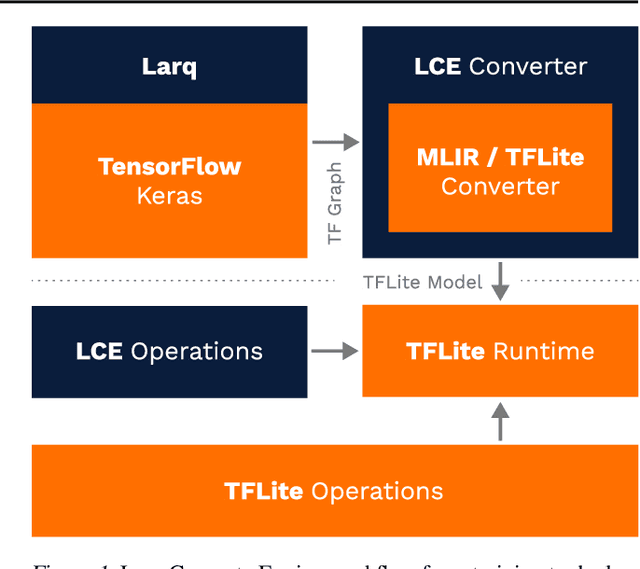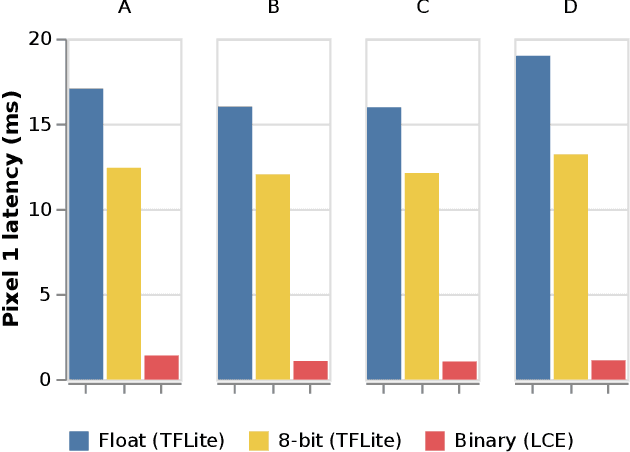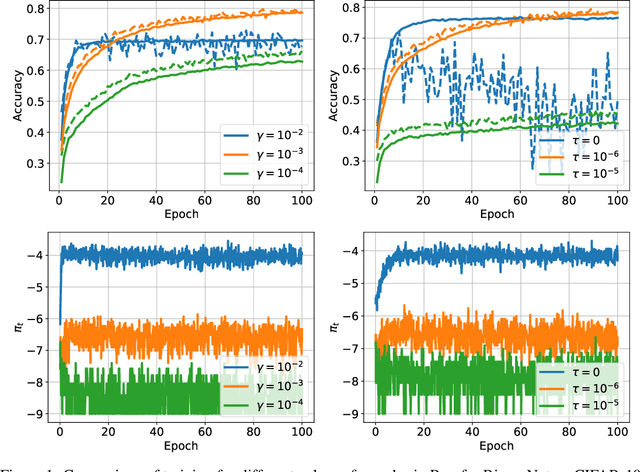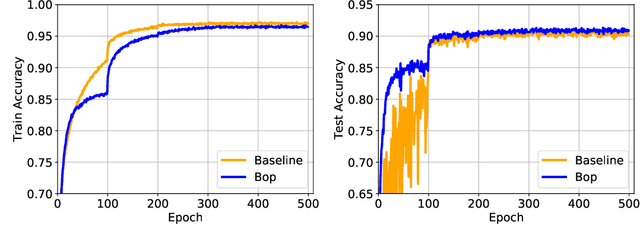Lukas Geiger
Larq Compute Engine: Design, Benchmark, and Deploy State-of-the-Art Binarized Neural Networks
Nov 18, 2020



Abstract:We introduce Larq Compute Engine, the world's fastest Binarized Neural Network (BNN) inference engine, and use this framework to investigate several important questions about the efficiency of BNNs and to design a new state-of-the-art BNN architecture. LCE provides highly optimized implementations of binary operations and accelerates binary convolutions by 8.5 - 18.5x compared to their full-precision counterparts on Pixel 1 phones. LCE's integration with Larq and a sophisticated MLIR-based converter allow users to move smoothly from training to deployment. By extending TensorFlow and TensorFlow Lite, LCE supports models which combine binary and full-precision layers, and can be easily integrated into existing applications. Using LCE, we analyze the performance of existing BNN computer vision architectures and develop QuickNet, a simple, easy-to-reproduce BNN that outperforms existing binary networks in terms of latency and accuracy on ImageNet. Furthermore, we investigate the impact of full-precision shortcuts and the relationship between number of MACs and model latency. We are convinced that empirical performance should drive BNN architecture design and hope this work will facilitate others to design, benchmark and deploy binary models.
Latent Weights Do Not Exist: Rethinking Binarized Neural Network Optimization
Jun 05, 2019

Abstract:Optimization of Binarized Neural Networks (BNNs) currently relies on real-valued latent weights to accumulate small update steps. In this paper, we argue that these latent weights cannot be treated analogously to weights in real-valued networks. Instead their main role is to provide inertia during training. We interpret current methods in terms of inertia and provide novel insights into the optimization of BNNs. We subsequently introduce the first optimizer specifically designed for BNNs, Binary Optimizer (Bop), and demonstrate its performance on CIFAR-10 and ImageNet. Together, the redefinition of latent weights as inertia and the introduction of Bop enable a better understanding of BNN optimization and open up the way for further improvements in training methodologies for BNNs. Code is available at: https://github.com/plumerai/rethinking-bnn-optimization
 Add to Chrome
Add to Chrome Add to Firefox
Add to Firefox Add to Edge
Add to Edge